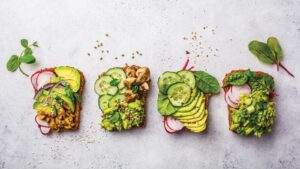As I entered my 60s, I became more interested in how to live a long and healthy life. Most people would like to increase their lifespans, but even more important is increasing your health span. Health span is the number of years in which you live without chronic diseases and are able to carry on your normal life tasks independently.
What can we learn about increasing both lifespan and health span from centenarians? Boston University is conducting one major study, the New England Centenarian Study. Areas of the world that have the largest numbers of centenarians are called Blue Zones. Researchers are also doing experiments with animals on diet and lifestyle factors that impact aging.
As I investigated all of this longevity research, I learned there are a number of factors that seem to be important for achieving a long life. The first of these is your genetics.
Have Good Genetics
The New England Centenarian Study found that exceptional longevity runs in families. They have identified some of the genetic variants and are continuing to research this area. Since my grandmother lived to age 96 and my mother is currently 91, I probably have some of these long-life genes.
Unfortunately, we do not have control over our genetics. But we can all take actions to maximize our healthy lifespan. Learning and adopting the lifestyle habits common to centenarians is one way to do this.
Research has found a number of things centenarians share in common. These factors include healthy diet, a non-toxic lifestyle, good emotional health, regular moderate exercise, deep social connections, staying mentally active, and having a strong faith and spiritual life. This article will discuss the dietary component. Articles in subsequent months will consider the other factors involved in increased health span and longevity.
Stay Lean
Almost no centenarians are obese, and most, especially men, are lean. The Seventh Day Adventists have studied the health of several member cohorts since the late 1950s. Their research on elderly Adventists showed that men over age 75 with the highest life expectancy had a BMIof 22.3 or below. Adventist women over age 75 with the highest life expectancy had a BMI of 27.4 or below. Obesity is defined as anyone with a BMI of 30 or greater. Many chronic diseases are associated with being obese; these include heart disease, cancer, type 2 diabetes, liver disease, and mood disorders such as depression. These diseases are also the major causes of death. To the extent that these diseases can be prevented, lifespan should also be increased.
The primary way to prevent obesity, or lose weight if someone is already obese, is through diet. The food we eat accounts for 80% of weight loss, with the remaining 20% from exercise. One major component to losing weight (or not gaining as we age) is to eat fewer calories.
Eat Less
The Blue Zones studies found that centenarians generally ate fewer calories than the average American. This helped them stay lean throughout their lives. Okinawans have a practice called hara hachi bu, eating until they are 80% full. They consciously reduce their portion sizes, in contrast to the super-sized meals served in most restaurants today.
Blue Zone residents in Ikaria, Greece, eat less because they fast regularly. As Greek Orthodox believers, they have a modified weekly fast year-round and additional fasting during the 40 days of Lent. A majority of Seventh Day Adventists, another Blue Zone, are vegetarians. They eat fewer calories because of their higher intake of low calorie non-starchy vegetables and their lower intake of high calorie sugar and fat-laden treats. Adventists still contract heart disease, cancer, and type 2 diabetes, but at much later ages than other Americans. Thus, Seventh Day Adventists have a longer health span.
Eat Whole Foods
The average American diet consists of 60% processed foods. These foods generally contain high levels of added sugar, refined grains, and unhealthy fats. By substituting fresh fruits and vegetables for most processed foods, calories are reduced and micronutrients is increased. The optimal ratio of plant foods to animal foods is debated by health experts. Some propose that all people should be vegans and avoid all animal foods. Other experts, including myself, believe healthy diets can include animal foods. What all of these healthy eating patterns have in common is the elimination of processed foods and the consumption of large quantities of non-starchy vegetables instead.
To increase your chance of a long health span, your first step should be to look at what you eat. If you are eating lots of processed foods, gradually replace them with whole foods, primarily non-starchy vegetables. This is a major component in helping you increase your chances of living to 100.
If you want to know your likelihood of reaching 100, use the Life Expectancy Calculator at LivingTo100.com. You will answer questions about your age, gender, lifestyle, and current health status. I entered all the data for myself and the website quiz calculated that I would live to 102. I will take that!
























